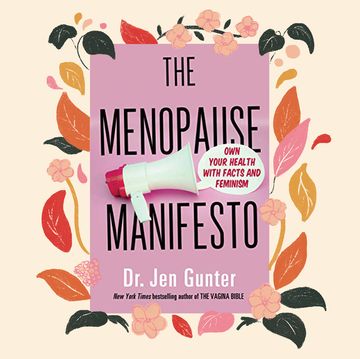From hot flashes and night sweats to vaginal dryness and other uncomfortable symptoms, menopause (and perimenopause) can be tough to deal with — but far too few healthcare providers are well-versed in menopause care. In fact, less than a third of obstetrics and gynecology residency programs in the United States include a menopause curriculum, according to research published in the journal Menopause. There’s also a knowledge gap among primary care providers, and menopause symptoms often go untreated in the primary care setting, suggests other research in Menopause.
If you're having trouble finding the help you need or don't want to wait months to see your OB/GYN, virtual menopause care or telehealth, might a good option.
How do telehealth menopause clinics work?
Over the past decade, virtual menopause clinics like Gennev, Midi, Pandia Health and Allara have treated thousands of patients. Even CVS MinuteClinic now offers virtual menopause services.
The process usually starts with a questionnaire about your health history and symptoms. Next is a video call with a clinician, such as a doctor, nurse practitioner or physician assistant. They might prescribe medications, like hormone replacement therapy or fezlotinetant, to ease your symptoms. They might also recommend lifestyle changes, such as sleep management. Some connect users with dietitians, health coaches and other services.
Some virtual menopause clinics refer patients to in-person providers for bloodwork, PAP smears or other in-person services. For example, Midi says their clinicians will direct patients to facilities that are convenient for them. Gennev partners with another company, Lodus, to help patients schedule in-person checkups.
You might pay a fee for each visit or subscribe for unlimited monthly access. Some services accept insurance, but you have to check the fine print to see if your plan made the cut.
What are the benefits of telehealth menopause care?
Virtual menopause clinics offer convenient, fast access to care. "I think the online access is really very helpful for people who don't have community access to a provider who's got knowledge and experience with menopausal care," says Barbara DePree, M.D., an OB/GYN at Holland Hospital Women's Specialty Care in Holland, Michigan.
With the right treatment, annoying symptoms can resolve quickly. About a year ago, Summer Kessel, a registered dietitian at a weight loss telehealth company, started noticing fatigue and other perimenopausal symptoms. She didn’t want to wait months until her next appointment with her OB/GYN to discuss her concerns. Plus, she had only seen her OB/GYN for pregnancy and wanted to talk with a provider who specialized in menopause.
Kessel joined the virtual menopause clinic Midi. Within a matter of days, she had an appointment that was covered by insurance, minus a $40 copay. She received prescriptions for an estradiol patch and progesterone pill.
"After two weeks of taking it, I just was like, Oh, I feel so much better," Kessel says. Her acne cleared up. Her appetite normalized. She felt more like herself. She still takes the medications.
What are the risks?
The key to any treatment path, of course, is getting the best treatment for you. Because telehealth is inherently different from a traditional health care setting, there are certain things you need to keep in mind:
- Without an in-person exam, your doctor could miss some clues. For some menopause symptoms, like vaginal dryness, a pelvic exam is critical for proper diagnosis and treatment. "There are a lot of other things that go on that can cause discomfort and dryness, for instance, or itching, or whatever the symptom might be, and that's a gap that I think is hard to bridge with just telehealth management," says Dr. DePree. One example: lichen sclerosus, an inflammatory skin condition that affects the genitals. It often starts in menopause. Early detection and treatment of lichen sclerosus can help reduce your risk of vulvar cancer.
- Providers might push medications, supplements or other products you don't need. "I do question the motivation of some of the services being provided, and therefore the products that might go along with the online access," says Dr. DePree. Despite her experience with telehealth, Kessel has concerns about the commodification of perimenopause and menopause as a product to sell or a problem to solve. "There are some medical influencers in the space who are selling supplements, workout programs and nutrition plans for perimenopause. As a registered dietitian, I can tell you there are no nutrition plans specific to perimenopause other than a healthy, balanced, nutritious diet, which is the way we want everyone to eat," she says.
How to make the most of virtual care for menopause
Telehealth can be extremely beneficial if you're struggling to get the care you need in an in-person setting. Just follow these tips:
The bottom line
Virtual menopause clinics can help you get fast access to treatment for menopause and perimenopause symptoms, like fatigue, hot flashes and night sweats. However, you might still require in-person checkups and blood work. Some providers might also recommend medications and other products you don’t need. Keep your entire medical team informed about any care you seek on virtual platforms so they can help you monitor your symptoms and medications.













